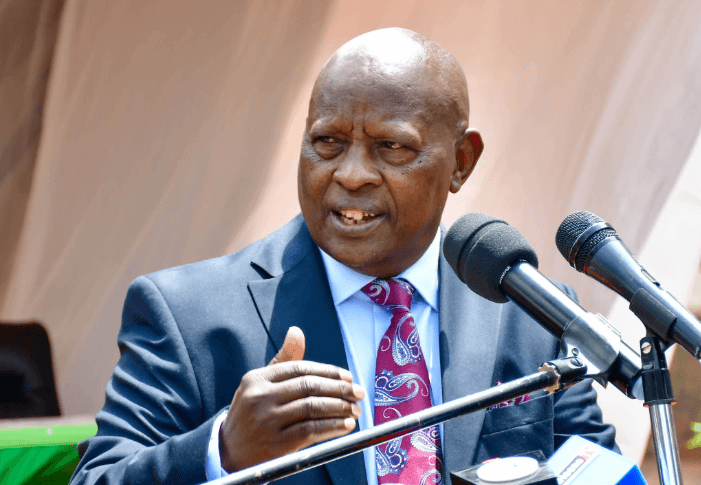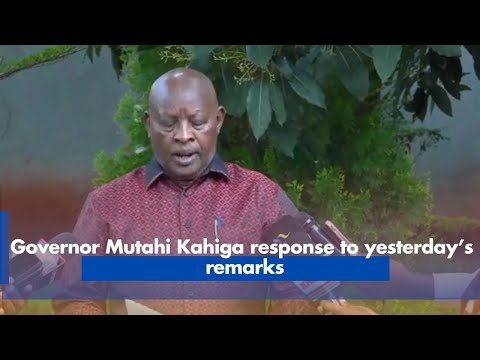Former Attorney General Charles Njonjo played a pivotal role in President Daniel Moi’s ascendancy to power upon the death of founding President Jomo Kenyatta.
And yet, although he swiftly dismissed Moi’s regime as a “passing cloud”, Njonjo would rise to become the country’s most powerful man after Moi.
Njonjo was then serving as the country’s first post-independence Attorney General, a powerful position that made him the President’s chief legal advisor.
Analysts have recorded that were it not for Njonjo, Moi would have never succeeded Kenyatta upon his death as the country’s second president.
Njonjo’s camaraderie with Moi had manifested itself way back in 1965, a year after assuming office as AG and ex-official member of Parliament, and Cabinet.
It happened that while riding with Kenyatta in his presidential limousine from Kisumu to Kericho, he fronted Moi’s name for the vacant position of Vice President.
At the time, Joseph Murumbi had just unexpectedly resigned from his position and Kenyatta was wondering loudly whom he would pick as his replacement.
And when Kenyatta asked Njonjo if he had anyone in mind to assume the second in command, the he quickly fronted Moi’s name, and to which the President accepted.
Moi, who was then Minister for Home Affairs, was chosen for his subdued demeanour and loyalty that portrayed him as a safe pair of hands.
“As we drove one day in the presidential limousine from some town in the Rift Valley after Murumbi had resigned as Vice President, Mzee wondered loudly whom he would appoint to replace Murumbi," Njonjo recalled.
"Then Kenyatta asked me: ‘Who do you have’? To which I replied, ‘How about Moi’?”
According to him, Kenyatta was so pleased with this proposal that he appointed Moi as VP the very next day, exposing Njonjo’s grip on power and his influence around the president.
Njonjo was to later shield Moi from the Change the Constitution Movement, a grouping of Central Kenya legislators who were opposed to Moi succeeding Kenyatta.
Njonjo was a stickler for the law, which was why he stood firm on the whole issue of the Kenyatta succession when he insisted that the country must follow the constitutional path.
The Constitution provided that, in the event of the death or incapacity of the sitting President, the Vice President would take over for 90 days before fresh elections were held.
In 1976, Njonjo came out fighting a proposed amendment to the constitution to bar Moi from automatically succeeding Kenyatta following fears over the president’s frail health.
Some of Kenyatta’s allies who were behind the move included Njoroge Mungai and Njenga Karume.
Others were Nakuru kingpin Kihika Kimani, the ‘King of Meru’ Harvester Angaine and his Ukambani counterpart, Paul Joseph Ngei.
The group’s ‘Change the Constitution’ campaign reached a crescendo when it held a charged rally in Nakuru at which Ngei controversially asked Kenyans to give him the reins of power for just three days, and declared openly that he would never relinquish the position.
An ally of Moi, Njonjo rejected the group’s proposals in a heated debate in the National Assembly and accused them of imagining the death of the President which, he informed them, was treasonable.
“You do not change the Constitution by the roadside. I told the group to stop imagining the death of the President and instead take an Amendment to Parliament if they had a genuine cause instead of playing the tribal card,”Njonjo has been quoted as having recalled.
However, the group’s scheme was successfully thwarted by the combined force of Moi and his supporters, who included Finance Minister Mwai Kibaki along with Njonjo.
At some point, Njonjo was accused of having had personal motives of investing in Moi’s leadership.
And when Kenyatta died on August 22, 1978, Moi succeeded him as the country’s second president.
Njonjo would later retain his position as AG as he had anticipated, but with the added reputation of being a kingmaker and a defender of the Constitution and democracy.
Njonjo’s relationship with Moi, however, turned temporarily frosty a few weeks into the latter’s presidency.
Njonjo had been quoted by the media as allegedly saying that the Moi regime was nothing but “…a passing cloud.”
However, the whole hullabaloo soon faded away and the damage quickly repaired.
Njonjo would later cultivate his relationship with the new Head of State, to such an extent that the two became inseparable.
Then Minister for Internal Security, G.G. Kariuki joined the team and trio would ride in the presidential limousine as Moi criss-crossed the country consolidating his authority.
In 1980 Njonjo resigned as AG to contest the Kikuyu parliamentary seat, which he easily won and was appointed as Minister for Home and Constitutional Affairs.
However, 1983 Njonjo fell out with Moi after accusations that the former was trying to usurp the presidency.
Moi took a swipe at unnamed government officials who were conspiring with foreign governments to grab power after the failed 1982 coup.
Martin Shikuku – who was one of Njonjo's fiercest critics – tabled a document in Parliament detailing a bank account allegedly maintained by then AG to maintain election funds.
Moi then decided to purge the ruling party, Kanu, and the Cabinet of figures he believed wanted him out of power.
Chief among them was Njonjo and the equally powerful Internal Security Minister, ‘GG’ Kariuki.
Njonjo said that he had no intention of overthrowing Moi, saying the whole thing was hatched by people who thought he was too powerful and wanted him out of the power equation.
“They claimed that I had the support of America and Britain. This was not the case at all. These people were like wild dogs baying for the blood of a rabbit,” he was quoted saying.
Njonjo's goose was thereafter cooked after the formation of a judicial committee to investigate claims of treasonous behaviour.
Various legislators, including Lawrence Sifuna (Bungoma South), Francis Mutwol (Kerio Central) and Mashengu wa Mwachofi (Wundanyi South) appeared before the Cecil Miller-led commission.
Eventually, the commission returned a guilty verdict on all charges against Njonjo – except for that of treason.










